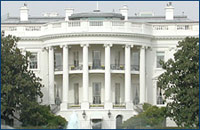Lessons from Nebraska’s Struggle With an Abandoned Baby Law
 In the past few years, many states have passed legislation allowing parents of newborns to drop their infants off at a designated safe place, no questions asked. These laws are intended to prevent the tragedy of unwanted newborns that have been literally left to die in dumpsters, public toilets, and similar places, usually by panicked teenage parents. Nebraska is the most recent state to pass such a law, but whether by negligence or design, the Nebraska statute did not specify a maximum age of a child who could be left at a safe place without legal repercussions to the parents. In a turn of events that would be comical if it weren’t so sad, Nebraska has seen a parade of 17 different children dropped off at designated hospitals: none of them have been infants, and most have been adolescents. Since Nebraska’s legislature is part-time and does not resume session until January, there may be more drop-offs before the law can be amended.
In the past few years, many states have passed legislation allowing parents of newborns to drop their infants off at a designated safe place, no questions asked. These laws are intended to prevent the tragedy of unwanted newborns that have been literally left to die in dumpsters, public toilets, and similar places, usually by panicked teenage parents. Nebraska is the most recent state to pass such a law, but whether by negligence or design, the Nebraska statute did not specify a maximum age of a child who could be left at a safe place without legal repercussions to the parents. In a turn of events that would be comical if it weren’t so sad, Nebraska has seen a parade of 17 different children dropped off at designated hospitals: none of them have been infants, and most have been adolescents. Since Nebraska’s legislature is part-time and does not resume session until January, there may be more drop-offs before the law can be amended.
What’s going on here, and what can we learn from it?

